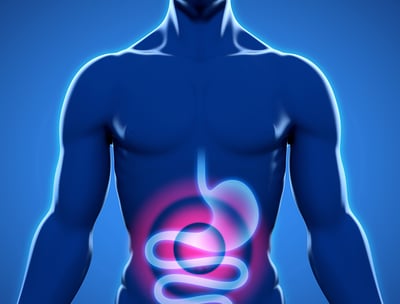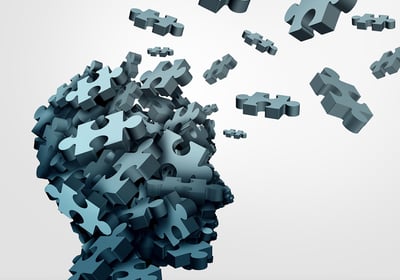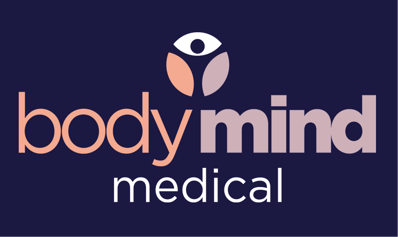

Gut Disorder Clinic
Cutting Edge Research
For Making Smart Decisions
IBS
IBD
Coeliac
SIBO
Leaky Gut
About The Gut-Brain Axis
Gut health is vital for overall well-being, deeply connected to the gut-brain axis—a communication network between the gut and brain. A balanced gut microbiome supports digestion, nutrient absorption, immune function, and mental health. Disruptions in gut health can lead to inflammation, digestive disorders, and mood issues like anxiety and depression. The gut-brain connection highlights the importance of a healthy diet, stress management, and probiotics in promoting not just digestive health but also emotional and cognitive well-being.
Did You Know ?
80%


of people with depression have altered gut bacteria composition




Increase in cognitive decline in people with gut dysbiosis
of the body's serotonin is made in the gut
46%
90%
The Gut - Brain Axis
The gut-brain axis is the bidirectional communication system between the gastrointestinal tract and the brain, involving neural, hormonal, and immune pathways. It plays a critical role in brain and mental health, influencing mood, cognition, and behaviour. Dysbiosis, or an imbalance in gut microbiota, can contribute to conditions like anxiety, depression, and cognitive decline through inflammation and disrupted neurotransmitter production. Supporting gut health with diet, probiotics, and stress management is essential for optimal brain function and mental wellbeing.
What Are Gut Disorders ?
Gut disorders are increasingly prevalent, affecting millions globally. Conditions like IBS, leaky gut, and dysbiosis arise from poor diet, chronic stress, antibiotic overuse, and environmental toxins. These issues disrupt gut microbiota, leading to inflammation, impaired digestion, and nutrient deficiencies. Functional medicine focuses on identifying root causes, restoring gut health, and preventing long-term complications for improved overall wellbeing.
Consequences Of Untreated Gut Disorders
Untreated gut disorders can lead to widespread consequences, including chronic inflammation, nutrient deficiencies, and weakened immunity. Over time, conditions like leaky gut and dysbiosis may contribute to autoimmune diseases, skin issues, hormonal imbalances, and mental health problems like anxiety or depression due to the gut-brain axis. Persistent symptoms such as bloating, pain, and irregular bowel movements can impair quality of life, while long-term neglect increases the risk of more severe gastrointestinal diseases and systemic health issues.
Types Of Gut Disorders Loss
Provide a general summary of the services you provide, highlighting key features and benefits for potential clients.




Inflammatory Bowel Disease
Irritable Bowel Syndrome
Irritable Bowel Syndrome (IBS) is a chronic gastrointestinal disorder causing abdominal pain, bloating, and altered bowel habits (diarrhoea, constipation, or both). Triggered by stress, diet, or gut imbalances, IBS significantly impacts daily life and overall wellbeing.
Inflammatory Bowel Disease (IBD) is a chronic condition, including Crohn's disease and ulcerative colitis, characterised by inflammation of the gastrointestinal tract. Symptoms include abdominal pain, diarrhoea, and weight loss, potentially leading to severe complications if untreated.




Coeliac Disease
SIBO
Small Intestinal Bacterial Overgrowth (SIBO) occurs when excessive bacteria populate the small intestine. It leads to symptoms like bloating, diarrhoea, abdominal pain, and nutrient malabsorption. Often linked to gut motility issues, SIBO requires targeted treatment to resolve.
Coeliac disease is an autoimmune condition triggered by gluten, a protein in wheat, barley, and rye. It damages the small intestine, causing symptoms like bloating, diarrhoea, fatigue, and nutrient deficiencies. Lifelong gluten avoidance is essential for management.




Autoimmune Disease
Leaky Gut Syndrome
Leaky Gut Syndrome occurs when the intestinal lining becomes overly permeable, allowing toxins and undigested particles to enter the bloodstream. This triggers inflammation and is linked to autoimmune diseases, food sensitivities, and chronic health issues.
Gut health is closely linked to autoimmune diseases, as imbalances in gut microbiota or leaky gut syndrome can trigger immune system dysregulation. Addressing gut health through diet, probiotics, and lifestyle changes is key to managing autoimmune conditions.
What Is Neuroplasticity ?
Neuroplasticity refers to the brain's ability to reorganise itself by forming new neural connections throughout life. This adaptability enables the brain to compensate for injury, adapt to new experiences, and optimise function. In treating memory loss, neuroplasticity is foundational, as therapies focus on stimulating neural pathways, enhancing brain resilience, and restoring cognitive abilities. By addressing underlying factors like inflammation, stress, and lifestyle, treatments leverage neuroplasticity to improve memory, boost learning, and promote long-term brain health.
The Discovery Consultation
The discovery consultation is a three-part process analysing life stress, symptoms, and advanced lab tests to uncover root causes, providing personalised insights for effective treatment and lasting health improvements.
Symptoms Analysis
Functional medicine symptoms analysis for gut disorders evaluates issues like bloating, diarrhoea, constipation, abdominal pain, and food sensitivities. It identifies root causes such as dysbiosis, inflammation, or leaky gut, enabling personalised interventions to restore gut health and overall wellbeing.


Lifestyle Analysis
Functional medicine laboratory analysis for gut disorders investigates biomarkers like gut microbiota composition, inflammation markers, nutrient levels, and intestinal permeability. These comprehensive tests uncover root causes, enabling personalised treatments to restore gut health, improve digestion, and support overall wellbeing.
Laboratory Analysis




Functional medicine lifestyle analysis for gut disorders examines diet, stress levels, sleep quality, physical activity, and environmental exposures. This holistic approach identifies habits contributing to gut imbalances, guiding personalised strategies to optimise digestion, reduce inflammation, and improve overall gut health.
Get In Touch


Our Office
Inform visitors about your business location and working hours.
Address
Fernbank House, Springwood Way, Macclesfield SK10 2XA
Hours
9am - 6pm


